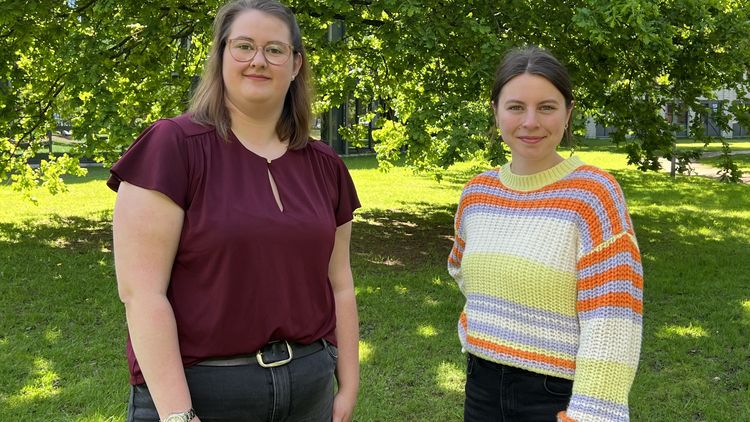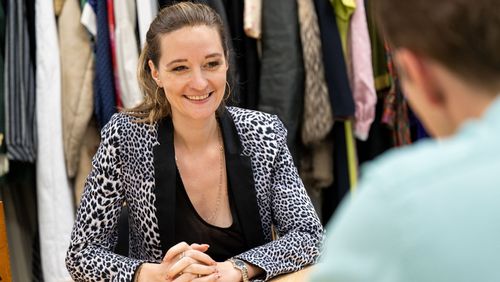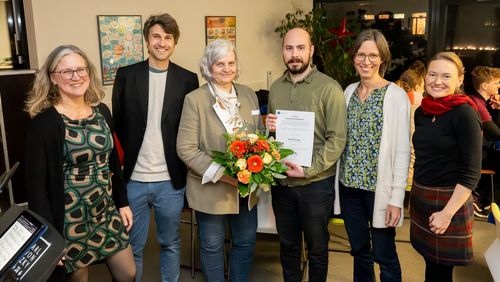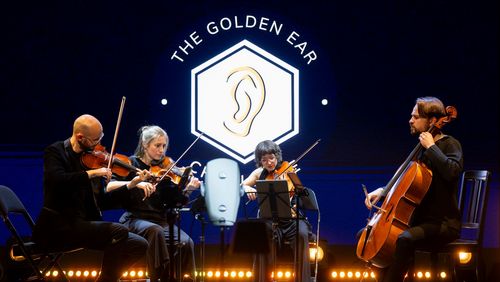Many schools in Germany have begun teaching children and youths who have fled the war in Ukraine. In Oldenburg, students from the University's Department of Special Needs Education are volunteering to help respond to their needs.
"It's something that is close to my heart," says Ann-Christin Elsmann. The 22-year-old student has a close relationship with her grandmother, who grew up as a war child and is deeply affected by the Russian war of aggression in Ukraine. Helping Ukrainian children who have fled the war seemed an obvious choice to Ann-Christin. "Many people are asking themselves: what can I do to help?", she says. When the Department of Special Needs Education appealed to its students she immediately volunteered.
Now she is one of ten special needs education students at the University of Oldenburg helping Ukrainian children and youths at schools in the Oldenburg area as volunteers. Ann-Christin works at a primary school in Oldenburg, where twice a week she takes two Ukrainian second-year pupils out of their class and gives them German lessons.
Annika Bondzio had only just begun studying special needs education – in addition to her almost completed studies of history – when she volunteered. Since then, she has been spending two mornings a week at the Alexanderstraße secondary school, where around 15 Ukrainian students from different age groups are being taught in a class of their own.
It was this school that provided the impetus for the Department's initiative. The school asked for support a few weeks after the war started, and the first student volunteers were recruited "very quickly," notes Prof. Dr Clemens Hillenbrand, a lecturer in pedagogy and didactics for people with learning disabilities. In the meantime, he and his team have expanded the programme to all Oldenburg schools, and researcher Dr Matthias Schulden has been put in charge of coordinating the students' voluntary work.
"Teaching children and youths whose native language is not German and seeking alternative means to communicate – whether it's because they never learned the language or because they have learning impairments – is one of the main tasks in special needs education," Schulden explains.
Ann-Christin Elsmann already has experience in this area. She previously volunteered with a refugee family from Iraq, for example, helping them to communicate with the German authorities. In her German lessons with her two second-year pupils she aims for a "playful and interactive" approach. She has a box of picture cards which she uses to teach the two girls the German words for objects of their everyday life like bread, backpack or pen. She went through the words for the colours with them and then asked them to go around the classroom and to point to objects in the different colours: "Where do you see blue? Where do you see green?"
"My main focus for now is that they understand words," says Ann-Christin. But it's also about teaching them to write, she explains: "Because they haven't learned English yet, they aren't familiar with Latin script either, so they have a lot to learn on several levels – reading, writing and speaking. It's very difficult when you have to tackle so many aspects at once." She also predicts: "When grammar comes into play, that will be another big hurdle." But as a volunteer who is writing her Bachelor's thesis at the same time she accepts that the lessons can't be perfect.
The situation is similar for Annika Bondzio and the mixed-age learning group at the secondary school. "The youngest are nine and the oldest are 16," says the 23-year-old. She usually assists the main teacher and a school support assistant who fortunately speaks Russian. "Naturally, communication isn't easy," Annika says. "I'd like to be able to be able to converse with the students directly. I partly translate via smartphone and I'm also trying to learn Ukrainian using an app now."
Despite the language barrier she has already designed her first history lessons, including an introduction to the feudal system and estates of the Middle Ages. "It's a matter of simplifying each topic – at least linguistically – as much as possible," she says. And notwithstanding the age range and the circumstances, she perceives her time in the classroom as "almost normal teaching – perhaps a little more lively than usual".
Annika also has previous experience as a volunteer. Among other things she has been leading a group of nine- to 13-year-olds at the Youth Red Cross for many years. Now she is grateful that she is getting this "extra practice" in a school context, "because due to the pandemic, in recent times it hasn't been easy for students to acquire practical experience".
Overall, the students are dealing with a high degree of heterogeneity among their refugee protégés, also as regards "personal and family situations," emphasizes coordinator Matthias Schulden. "They're involved in providing social, emotional and psychological support, they document how a student's personal situation affects learning at school and look for solutions. In this way the students test and develop their personal and professional skills, as future teachers or in other professional fields."
Nevertheless, Ann-Christin also encourages students of other subjects who enjoy working with children to get involved in this area. "I can only recommend it to anyone who has the time and wants to help, because this work can be very enriching – at least that's how I experience it," she says. Annika heartily agrees. "When something is understood: that sparkle in their eyes, the joy of learning – that's the most beautiful thing."






